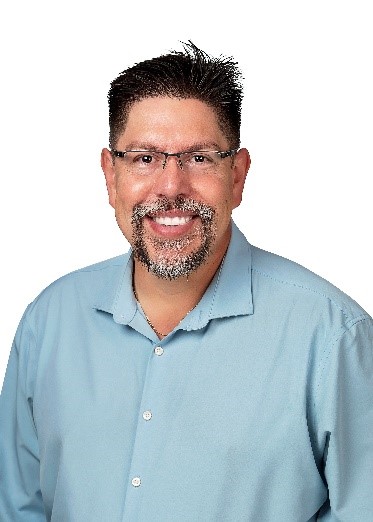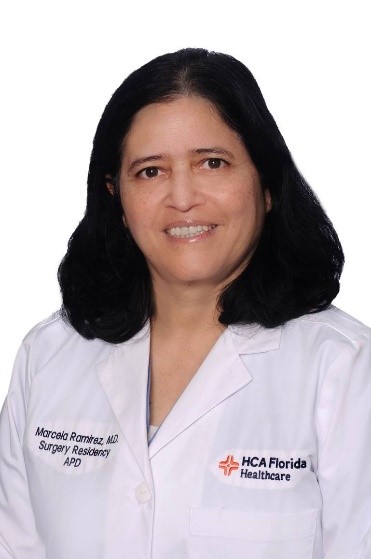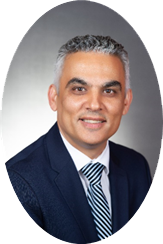Alfredo Tirado, MD, FACEP

Program Director, Associate Professor
Emergency Medicine Residency
HCA Healthcare/USF Morsani College of Medicine North Tampa GME:
Oak Hill Hospital Program
How long have you been in your field of study?
18 years.
How long have you been employed at HCA Healthcare?
Since 2018, 6 years with HCA Healthcare, 17 years in GME.
Tell us about your background and how your path led you to HCA Healthcare.
I am Originally from Puerto Rico. I finished my Medical School and Emergency Medicine Residency Program at the University of Puerto Rico, where I served as Academic Chief Resident in my Senior year. After completing my Emergency Medicine Residency Program, I went to Providence, Rhode Island where I completed an Emergency Ultrasound Fellowship with the University Emergency Foundation associated with The Warren Alpert Medical School of Brown University.
I was recruited as Core Faculty for a New Residency Program in Advent Health and started as the Ultrasound Director for Advent Health EM Residency Program from its inception in 2007 and practiced there until 2018. During that time, I founded the FL Hospital (Advent Health) Ultrasound Fellowship and was Fellowship Director from 2013-2018. From 2009-2018, I served as Associate Professor for the College of Medicine at the University of Central Florida, where I helped develop and implement an Ultrasound curriculum for Medical Students for all four years of education. In 2018, the opportunity opened to once again help start a New EM Residency program, with HCA Healthcare sponsored by USF Morsani College of Medicine, and I was offered the Program Director position since its inception. I'm currently appointed Associate Professor at USF Morsani College and the University of Central Florida.
What attracted you to your specialty and why did you decide to focus on this specialty?
Not many people know this, but my decision to pursue Emergency Medicine stems from a deeply personal experience. While I was in medical school in Puerto Rico, my father became a trauma patient. He was severely injured and nearly lost his life. At the time, the trauma center staff weren’t required to be EM-trained, and to be honest he survived only because I was familiar with the system and managed to get classmates to activate the trauma team. My medical school provided incredible support, allowing me time to be with my family. When I returned, my first rotation was in Emergency Medicine, and from that moment on I was sold. During that rotation, I encountered a patient in a situation very similar to my father's, and I was able to help the team, just by getting blood and participating in the resuscitation. That experience solidified my commitment to Emergency Medicine. From that day forward, I promised myself I would dedicate myself to ensuring that no family would have to endure what mine did without a trained EM professional ready to act.
What is your favorite thing about Graduate Medical Education?
I believe my favorite thing is the residents and faculty. It’s incredible to witness the transformation that occurs over just three years, as residents evolve from having limited experience to having confidence in running an emergency department. I love going with them to breakfast on my last string of overnights spending time with them and listening to what they want to achieve. Additionally, I love working with my core faculty, they are like family to me. Even though we sometimes have disagreements, our shared commitment to doing what’s best for our learners always brings us together. Especially my Associate Program Director, who was my co-chief during residency, and to this day, we remain great friends.
How has Faculty Development helped you in your career?
I believe Faculty Development has been instrumental in my career. Just as in any field, success requires ongoing education and self-improvement, and this is equally true for faculty. Through faculty development programs, I have gained valuable skills in areas where I previously had limited training, which has made my work more efficient and effective.
Do you have any advice for new residents or physicians?
If I could go back and do it all over again, I still think I would choose the same path, but I would have started engaging in faculty development much earlier and sought out more mentors to help guide my career choices. Early in your career, it’s important to say "yes" to opportunities that resonate with you, but always do so with genuine commitment and make sure to meet deadlines. This will help you establish a strong reputation. Once you’ve built that foundation, learn to say "no" when necessary—but make sure to redirect opportunities to trusted colleagues who can handle them effectively.
What do you do in your free time?
In my free time, I love to run and am currently training for the Princess Half Marathon. I’m also a big Star Wars fan, enjoy reading self-improvement books, and, believe it or not, I’m into anime.
Marcela Carolina Ramirez, MD, FACS

Assistant Professor of Surgery USF
Associate Program Director
HCA Florida Kendall Hospital
General Surgery Program
Trauma, and Surgical Critical Care
How long have you been in your field of study?
I have 24 years of experience as a Surgeon and 14 years here in the United States.
How long have you been employed at HCA Healthcare?
Almost 14 years.
Tell us about your background and how your path led you to HCA Healthcare.
I had a long journey as a Foreign Medical Graduate, before starting my residency in America, I did a Research Fellowship in Endocrine Surgery at the University of Miami. Then, I did an International Fellowship in Pediatric Surgery at the University of Miami. I started my residency in General Surgery at Jackson Memorial Hospital; as a preliminary GS resident and did my PGY1 and PGY2 years. Also, I did a Burn Fellowship at Jacobi Hospital in New York. Finally, I completed my General Surgery training at Scott & White Memorial Hospital in Texas. I did my Surgical Critical Care Fellowship at Ryder Trauma Center / University of Miami.
I met Dr. Mark McKenney while I was a resident at JMH, and then he was my attending when I was a fellow. He told me that they were opening a Trauma Center at Kendall Hospital and at that time he was thinking of coming to work at Kendall Hospital. Since I graduated from my fellowship I have been working with HCA Florida Kendall. Now it has been 14 years since I became part of the HCA family.
What attracted you to your specialty and why did you decide to focus on this specialty?
I have a passion for General Surgery, but I wanted to live in a big city, so I decided that as a Trauma Surgeon, I would be able to continue doing what I enjoy the most.
What is your favorite thing about Graduate Medical Education?
The residents are like my kids and makes me happy to see them progressing through the residency years and practice.
How has Faculty Development helped you in your career?
Faculty developments have helped me learn how to be a better teacher, learn to talk about different topics with residents and staff and give feedback without sounding like I am punishing them.
Do you have any advice for new residents or physicians?
Love what you do. Care about your patients and staff. Treat everyone with respect. Be yourself.
What do you do in your free time?
I enjoy hiking with my husband and kids and spending time with family.
Abdo Asmar, MD, FACP

Program Director, Internal Medicine Residency Program
UCF-HCA Florida Healthcare (Greater Orlando/Osceola)
Vice Chairman, Graduate Medical Education
Department of Internal Medicine
Professor of Medicine and Medical Education
University of Central Florida, College of Medicine
How long have you been in your field of study?
22 years
How long have you been employed at HCA Healthcare?
My professional affiliation with HCA began in 2012 when the UCF College of Medicine partnered with HCA Florida Osceola Hospital to develop Graduate Medical Education programs. I feel privileged to have helped lead the accreditation of the UCF-HCA Florida Healthcare (Greater Orlando/Osceola) Internal Medicine Residency Program in 2014
Tell us about your background and how your path led you to HCA Healthcare.
After completing my medical education at Kaunas University of Medicine in Lithuania, I was honored to join the Internal Medicine residency at Cook County Hospital in Chicago, a historic institution known for outstanding clinical training. After residency, I was privileged to be selected as Chief Resident, an experience that deepened my dedication to medical education. Following my Chief Residency, I continued at Cook County Hospital as an academic hospitalist and Associate Firm Chief within the Internal Medicine Residency Program. During this time, I had the opportunity to teach Pathophysiology at Rush Medical College, which sparked a strong interest in Nephrology and led me to pursue further specialization at the University of Florida. After completing my Nephrology training, I joined the UCF College of Medicine's MD program as a founding faculty. My journey with Graduate Medical Education (GME) and collaboration with HCA began in 2012, when we initiated the development of GME programs with HCA Florida Osceola and the Orlando VA. I am proud to have been part of the accreditation process for the first UCF/HCA Healthcare residency program—the Internal Medicine Residency Program of Greater Orlando/Osceola. This partnership has since grown, now supporting over 600 residents and fellows across Florida.
What attracted you to your specialty and why did you decide to focus on this specialty?
I am a nephrologist by training but an internist at heart. I often describe Internal Medicine as the 'main course' and nephrology as the 'dessert' because, while I love nephrology, my primary focus as Program Director is on Internal Medicine. Internal Medicine provides a unique opportunity to care for both healthy adults in outpatient settings and the most critically ill patients in hospitals. In outpatient settings, internists build lasting relationships with patients, guiding them through their health journeys over time. In the hospital setting, internists have the privilege of coordinating patient care across various specialties, helping patients navigate complex healthcare systems. This role requires a broad knowledge base, strong communication skills with other specialties, and an in-depth understanding of healthcare systems. As an internist, you are the captain of the ship, guiding patients as they navigate their way through their healthcare journeys.
What is your favorite thing about Graduate Medical Education?
It is a joy to witness the transformation of learners from medical students to independent physicians, each following their unique path. For me personally, the experience is even more special when you stay connected with them after they leave, watch their growth beyond their training, and know they will always be part of you. I also take great pride in playing a part in shaping the future of medicine by collaborating with hospital leadership to improve training sites. GME gives us the opportunity to partner with hospitals and leaders, addressing the healthcare needs of communities while preparing residents to excel in the workforce. This combined effort plays a crucial role in shaping the next generation of physicians and addressing workforce issues.
How has Faculty Development helped you in your career?
My passion for teaching stems from my desire to share and from my interest in helping others achieve their goals and dreams, but passion alone is not enough to make a meaningful impact. To truly be effective, educators must develop the necessary skills, which can be achieved through professional faculty development. This combination of passion, enthusiasm, and refined skills is key to maximizing one's impact as an educator. I believe this approach—starting with a genuine desire to teach and enhancing it through faculty development—forms the foundation for success in my role as an educator
Do you have any advice for new residents or physicians?
Medicine is an incredibly rewarding and challenging path for anyone to take. Residency tests individuals in ways that few others have experienced. In difficult moments, I encourage residents to take a step back and remind themselves of the meaningful impact they’re making, even as a resident. Each action contributes to someone's well-being, and even if it’s not acknowledged, they should take pride in knowing they are making a difference. Saying, “I’m making a difference”, and then keeping that in mind should be the fuel that keeps residents and physicians going on their hardest days. I don’t think individuals recognize the difference they’re making and I don’t think we can say it enough because we’re busy. Additionally, while we strive to avoid mistakes, they are inevitable as we are human. We want to learn from them and grow. When mistakes happen, it’s important not to suffer in silence. Talking to someone, especially a colleague who most likely faced similar challenges, can provide support and reassurance. You are not alone in these struggles, and sharing the burden can help you grow and learn from the experience.
What do you do in your free time?
In my free time, I enjoy reading and spending time with my wife and two daughters. I'm an avid sports fan, especially when it comes to Premier League Soccer, and I'm a huge Liverpool supporter. I also love the thrill of go-karts and fast cars—though my 15-year-old daughter insists on giving her approval first, just in case 'Dad’s need for speed' gets a little too dangerous!